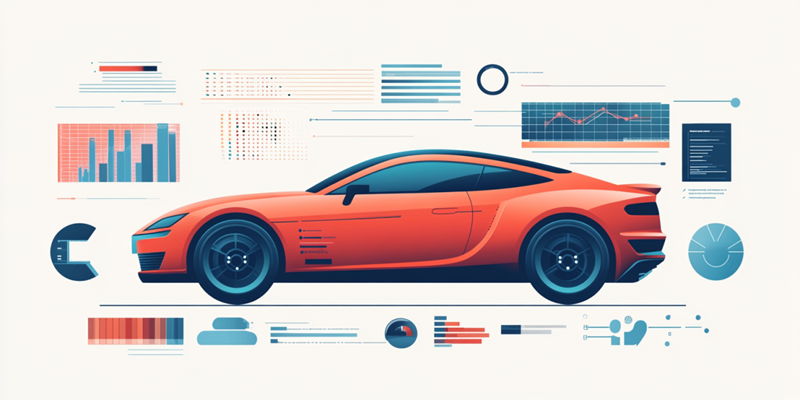The growing importance of data science in the automotive industry is becoming increasingly clear as smart vehicles and connected car technologies gain traction, generating a significant amount of data from millions of vehicles worldwide. Automotive data science is the practice of collecting, analyzing, and deriving insights from this data to improve vehicle design, safety, efficiency, and the overall driving experience.
Definition and Scope
Automotive data science involves utilizing data from vehicle sensors, telematics systems, and IoT devices. This data is processed through machine learning, statistical analysis, and predictive modeling to extract meaningful insights. By leveraging these technologies, automotive engineers and data scientists can draw actionable conclusions that drive innovations and enhance the functionality of modern vehicles.
Process Components
The process of automotive data science encompasses several critical steps. First, data collection involves gathering data from sensors, GPS systems, and OBD units. This raw data must then be stored using scalable cloud computing platforms to manage extensive volumes. The next crucial step is data processing, which includes cleaning and structuring data for analysis. Once prepared, data is analyzed using machine learning algorithms and big data analytics to uncover patterns and trends. Finally, data visualization presents these insights through charts, graphs, and dashboards, making them comprehensible for stakeholders.
Applications of Automotive Data Science
Predictive maintenance is one of the most notable applications of automotive data science. By analyzing sensor data, it is possible to anticipate vehicle failures and schedule maintenance preemptively. In the realm of autonomous driving, data science enables self-driving cars to interpret surroundings and make real-time decisions, significantly enhancing safety and efficiency. Fuel efficiency optimization also benefits from data science, as it provides drivers with real-time feedback to optimize fuel consumption, promoting environmental sustainability. Connected vehicles and telematics enhance the driving experience by offering services such as real-time navigation, remote diagnostics, and usage-based insurance. Additionally, driver behavior analysis identifies patterns to improve safety features and reduce accidents. Data science also informs the design of personalized in-vehicle experiences, featuring entertainment systems and voice-activated assistants tailored to individual preferences.
Role of Machine Learning
Machine learning and deep learning are pivotal in processing vast datasets for various automotive applications like predictive maintenance, autonomous driving, and fuel optimization. These algorithms continuously learn and improve by analyzing the data they process, thereby enhancing their efficacy over time.
Challenges
While automotive data science offers numerous benefits, it also presents challenges. Data security and privacy are paramount concerns, requiring robust measures to protect sensitive information from cyber threats and ensure compliance with data privacy regulations. Data integration poses another challenge, as it involves merging data from disparate sources into a cohesive set. Scalability is also a critical issue, necessitating the use of scalable cloud solutions to manage the increasing volume of data. Additionally, developing and maintaining sophisticated machine learning algorithms demands significant computational investments, often making it a complex endeavor.
Future Perspectives
The increasing relevance of data science in the automotive industry has become evident due to the rise of smart vehicles and connected car technologies. These innovations are generating vast amounts of data from millions of cars worldwide. Automotive data science involves the collection, analysis, and interpretation of this data to enhance various aspects of vehicle design, safety, efficiency, and overall driving experience.
For instance, data scientists can analyze driving patterns and vehicle behavior to predict maintenance needs, thereby preventing breakdowns before they happen. Advanced driver-assistance systems benefit from real-time data analysis to make driving safer. Moreover, fuel efficiency can be optimized by studying data on engine performance and driving conditions.
The insights gained from data science also contribute to designing more user-friendly and intuitive interfaces in vehicles. By understanding how drivers interact with their cars, manufacturers can create systems that better meet user needs. In sum, automotive data science plays a crucial role in modernizing the industry, leading to smarter, safer, and more efficient vehicles that offer a superior driving experience.

